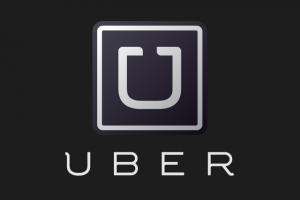
Uber, a San Francisco based technology company, had had a bumpy start with the city of New Orleans. It took 7 months of negotiations for the company to be able to start operating UberBlack back in September 2014. Under Uberblack, only luxury limos and SUVs are available through the Uber phone app. The council had to amend the city’s taxi and limousine code in order to allow UberBlack’s operation. However, the city code made it impossible for those with only one car to start a new small business in the livery industry, as the code requires drivers to own at least two limousines in order to be able to operate business.
According to reports, it was not until Thursday, April 9, that the City Council voted to allow to give lower-cost ride-sharing companies the authority to begin picking up fares through the UberX app, which is operated by drivers that own everyday cars. The vote culminates months of backroom negotiations between Mayor Mitch Landrieu’s administration, the council, and the ridesharing companies. However, the council also added a new amendment that renders moot any clause in a company contract with a driver or customer that requires arbitration before going to court. This, according to Uber, would affect its ability to operate in New Orleans, and the company is currently assessing whether UberX will be willing to operate in New Orleans at all.
Liability in Ride Shares
As of current, UberX requires a driver (who is considered an independent contractor, and not an employee) to have primary liability insurance up to $25,000 for property damage, $50,000 for death or personal injury for one person, and $100,000 for death or personal injury to two or more people. The policy must include $1 million in uninsured and underinsured motorist coverage while a passenger is in the vehicle. The company also requires a criminal background check in order to operate as a driver.
In Louisiana, the Department of Safety & Permits can also send each ride-sharing company a list of 25 drivers every three months who must submit to drug testing. The company then has five days to notify each driver, and each driver has 10 days to take the test. After an accident, a driver must submit to a drug test within 24 hours.
The state of the law regarding who is liable in a rideshare injury is still developing. While New Orleans does not allow binding arbitration clauses in rideshare contracts, the companies that connect drivers with passengers are not transportation centers and always disclaim responsibility for injuries that may occur. This means that if a driver only has personal liability insurance, then passengers who are in the rideshare vehicle might be unable to recover if the driver caused an accident and subsequently injured them, since most of the insurance policies on private cars do not cover commercial use. In a civil case after an accident, and if the companies connecting the drivers have independent insurance policies that do not make them responsible for driver-caused accidents (and the drivers have insufficient insurance), obtaining compensation for recovery-related expenses after an accident could prove extremely challenging.
Get Legal Help for Personal Injuries
Car accidents remain the main cause of personal injuries and traumatic brain injury in America. Harrell & Nowak has zealously represented people who have suffered personal injuries in litigation. We have recovered millions of dollars in settlements and verdicts on behalf of clients. We will give each client the attention they deserve. If you or a loved one has been injured, contact our New Orleans personal injury law firm today for a free, confidential consultation.
